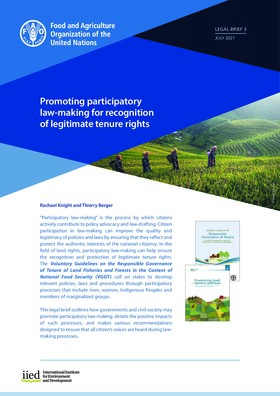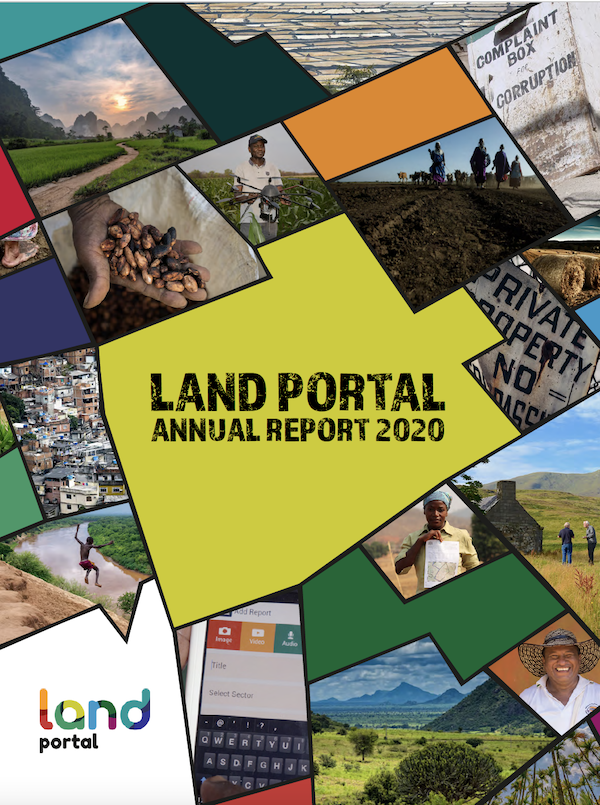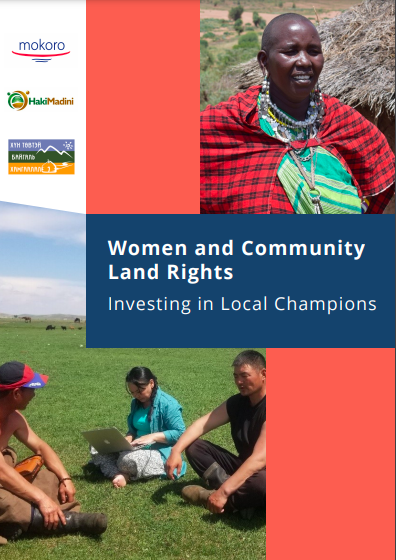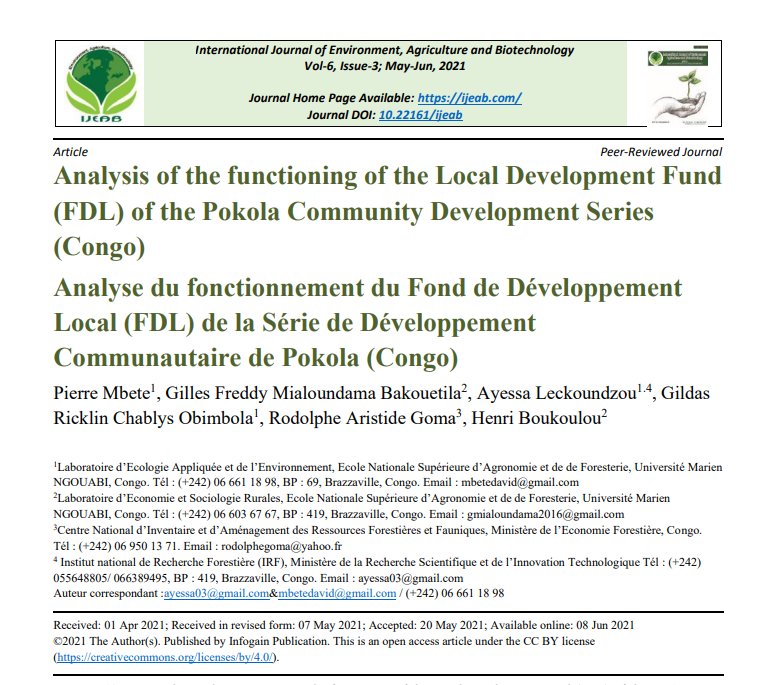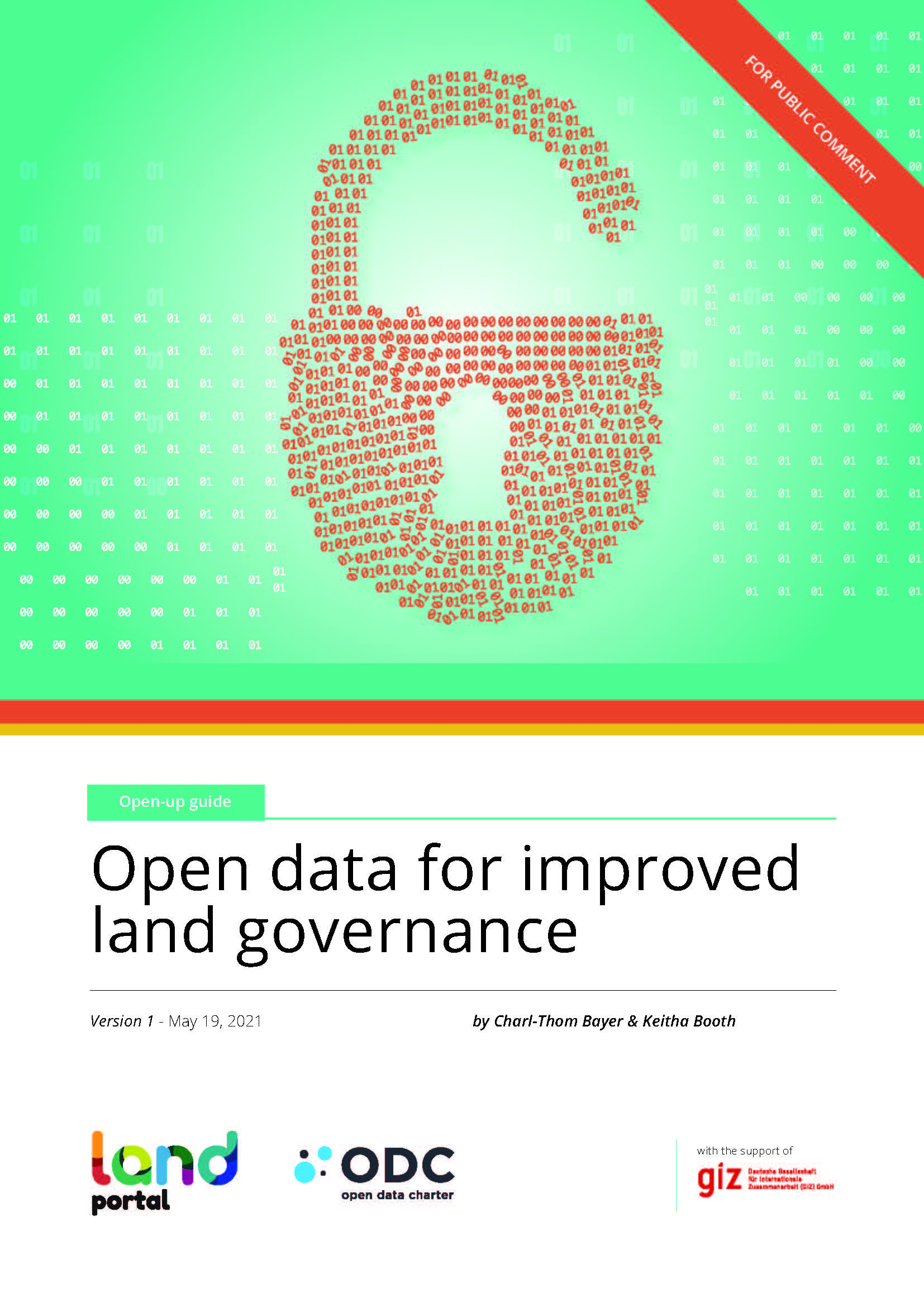Promoting participatory law-making for recognition of legitimate tenure rights
"Participatory law-making” is the process by which citizens actively contribute to policy advocacy and law-drafting. Citizen participation in law-making can improve the quality and legitimacy of policies and laws by ensuring that they reflect and protect the authentic interests of the national citizenry. In the field of land rights, participatory law-making can help ensure the recognition and protection of legitimate tenure rights.

